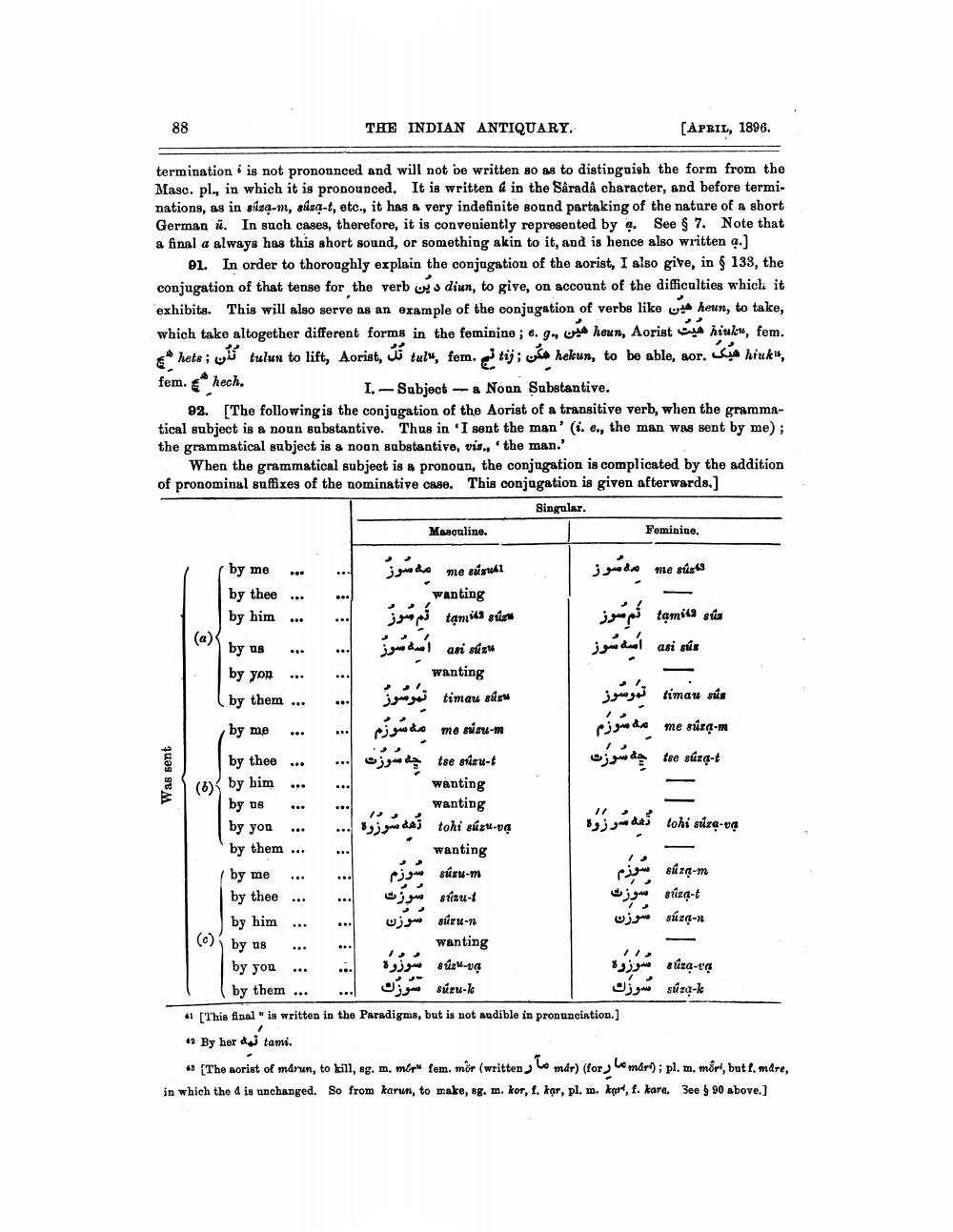________________
THE INDIAN ANTIQUARY.
[APRIL, 1896.
termination is not pronounced and will not be written so as to distinguish the form from the Masc. pl., in which it is pronounced. It is written in the Sâradâ character, and before terminations, as in slaa-m, sivat, etc., it has a very indefinite bound partaking of the nature of a short German i. In such cases, therefore, it is conveniently represented by 4. See 87. Note that a final a always has this short sound, or something akin to it, and is hence also written a.)
el. In order to thoroughly explain the conjugation of the aorist, I also give, in $ 138, the conjugation of that tense for the verb wys diun, to give, on account of the difficulties which it exhibits. This will also serve as an example of the conjugation of verbs like to heun, to take, which take altogether different forms in the feminine ; 6. g, houn, Aorist es hiuku, fem. E hets; V tulun to lift, Aorist, tulu, fem. i tij; who hekun, to be able, aor. La hiuks, fem. & hech.
I. - Subject --& Noon Substantive. 92. [The following is the conjugation of the Aorist of a transitive verb, when the grammatical subject is a noun substantive. Thus in "I sent the man' (i. e., the man was sent by me); the grammatical subject is a noun substantive, vis., the man.'
When the grammatical subject is a pronoun, the conjugation is complicated by the addition of pronominal suffixes of the nominative case. This conjugation is given afterwards. ]
Singular. Masculine.
Feminine.
me sruhl مه سوز
by him
me simum مه وزم
Was sent
by me ...
me sú:45 by thee
wanting just tąmiss sum
tamita situs by us judul asi súnu
asi sir by yon ...
wanting ( by them iymo si timau súru
jyou yo timau sús by me
pjguide me sútą-m by thee do tse sivu-t
tse súzę-t (6) by bim
wanting by us
wanting by you tohi súzung
aš tohi stize-up by them
wanting by me sru-m
súza-m by thee stizu-t
slizant by him súzun
súza-n wanting by you ... jy súzu-vo
úza-vo by them ... súzu-l
sú za-k *1 [This final" is written in the Paradigma, but is not audible in pronunciation.] ? By her dej tami.
[The norist of marun, to kill, eg. m. mürfem. mor (written co már) (for) lemar); pl.m. mort, but f. mdre, in which the d is unchanged. So from karun, to make, sg. m. kor, f. kar, pl. m. kort, f. kara. See $ 90 above.]
سوزم
سوزت
(c) by us




